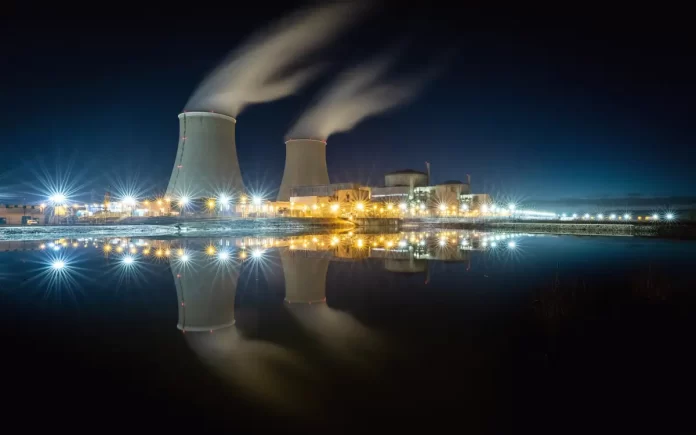New Delhi: In a groundbreaking development, India is poised to open its doors to private investment, aiming to inject approximately $26 billion into its nuclear energy sector, as reported by Reuters. This strategic move underscores India’s commitment to ramping up electricity generation from non-carbon-emitting sources, marking a significant departure from its traditional approach to nuclear power.
Currently, nuclear energy contributes less than 2% to India’s total electricity generation, but it holds immense potential for curbing carbon emissions, making it a vital component of India’s energy transition strategy.
The proposed investment is expected to propel India towards its ambitious target of sourcing 50% of its installed electric generation capacity from non-fossil fuel sources by 2030, a notable increase from the current 42%.
Engaging with at least five prominent private firms, including Reliance Industries, Tata Power, Adani Power, and Vedanta Ltd, the government aims to secure investments of approximately 440 billion rupees ($5.30 billion) from each company. Discussions between the federal Department of Atomic Energy, the Nuclear Power Corp of India Ltd (NPCIL), and these private entities have been ongoing, signaling a collaborative effort to drive nuclear power expansion.
The investment plan envisions the establishment of 11,000 megawatts (MW) of new nuclear power generation capacity by 2040, augmenting NPCIL’s existing fleet of nuclear power plants, which currently stands at 7,500 MW.
Under this innovative hybrid model, private companies will be responsible for financing the construction and operation of nuclear plants, including land acquisition and construction activities outside the reactor complex. However, NPCIL will retain control over critical aspects such as station construction, management, and fuel handling, in compliance with regulatory requirements.
Revenue generation from electricity sales will be the primary source of income for private investors, while NPCIL will oversee project operations for a fee, ensuring effective collaboration between the public and private sectors.
Charudatta Palekar, an independent power sector consultant, hailed the hybrid model as a pioneering solution to expedite nuclear capacity expansion, emphasizing its potential to drive innovation and efficiency in the sector.
The proposed plan, designed within the framework of India’s existing legislative provisions, signifies a significant step towards unlocking the full potential of nuclear energy in India’s energy landscape. While challenges persist, including stringent nuclear compensation laws and fuel supply constraints, India’s strategic partnership with private entities signals a promising trajectory for the future of nuclear power in the country.



